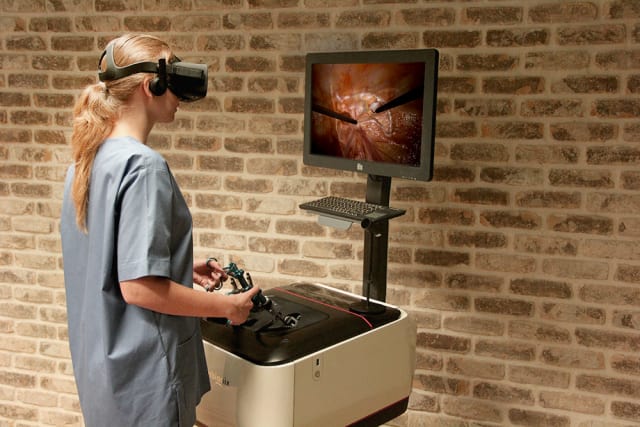
VR Revolutionizing Surgical Training for Precision and Skill Development
In the fast-paced realm of healthcare, where precision and expertise can be a matter of life and death, the integration of cutting-edge technologies has become imperative. Virtual Reality (VR) has emerged as a groundbreaking tool in revolutionizing surgical training, providing an immersive and dynamic learning environment for aspiring surgeons.
Immersive Learning Environments
Traditional surgical training methods often involve observing procedures in an operating room or practicing on cadavers. However, VR introduces a new dimension by creating realistic, immersive simulations. Trainees can step into a virtual operating room, gaining hands-on experience without the constraints of the physical world. This not only enhances their spatial understanding but also allows for repeated practice in a risk-free setting.
Precision Skill Development
One of the key advantages of VR in surgical training is its ability to facilitate precision skill development. Surgeons can hone their techniques in a controlled virtual environment, refining movements and mastering intricate procedures. The detailed feedback provided by VR simulations enables practitioners to identify areas for improvement, fostering a continuous learning cycle that is crucial in the medical field.
Enhanced Patient Safety
Patient safety is paramount in healthcare, and VR contributes significantly to this aspect of surgical training. By allowing surgeons to practice and perfect their skills in a simulated environment, the risk of errors during actual procedures is minimized. This translates to increased confidence and proficiency among surgeons, ultimately benefiting the well-being of patients.
Adaptability to Various Specialties
VR in surgical training is not confined to a specific medical specialty. Whether it’s neurosurgery, orthopedics, or cardiovascular surgery, VR can be tailored to provide specialized training for different disciplines. This adaptability ensures that surgeons can receive training that is specific to their chosen field, fostering expertise and excellence across various medical domains.
Cost-Efficient Training Solutions
Traditional surgical training can be expensive, involving costs related to cadavers, surgical equipment, and dedicated training facilities. VR offers a cost-efficient alternative by reducing the need for physical resources. Trainees can access virtual simulations from anywhere, eliminating the logistical challenges associated with traditional training methods.
Global Accessibility
The accessibility of VR technology has a profound impact on global healthcare training. Surgeons from around the world can connect and collaborate in virtual spaces, sharing knowledge and expertise. This interconnectedness not only fosters a sense of community among medical professionals but also facilitates the exchange of best practices on a global scale.
In the ever-evolving landscape of healthcare, VR continues to make significant strides in shaping the future of surgical training. Aspiring surgeons, seasoned practitioners, and medical educators alike can harness the power of VR to enhance learning, refine skills, and ultimately improve patient outcomes. The integration of VR in surgical training is not just a technological advancement; it’s a transformative force driving excellence in the field of medicine.
To explore more about the impact of VR in surgical training, check out VR in Surgical Training.
